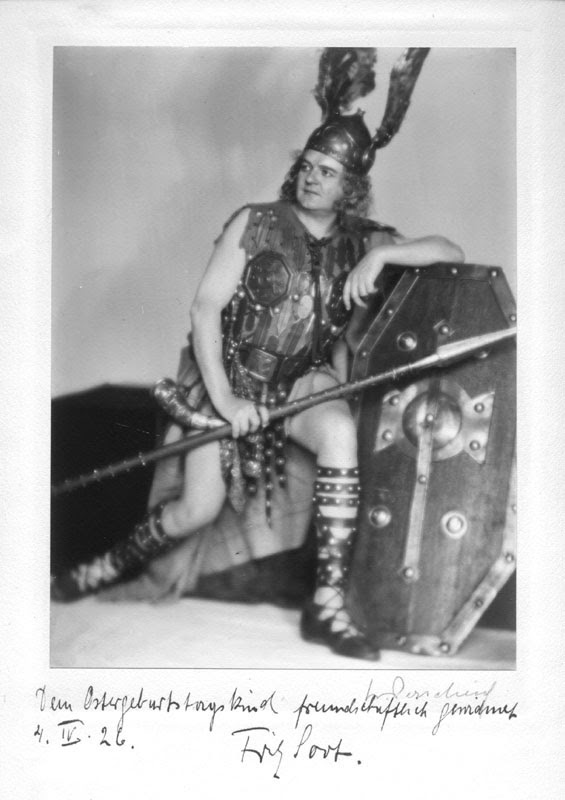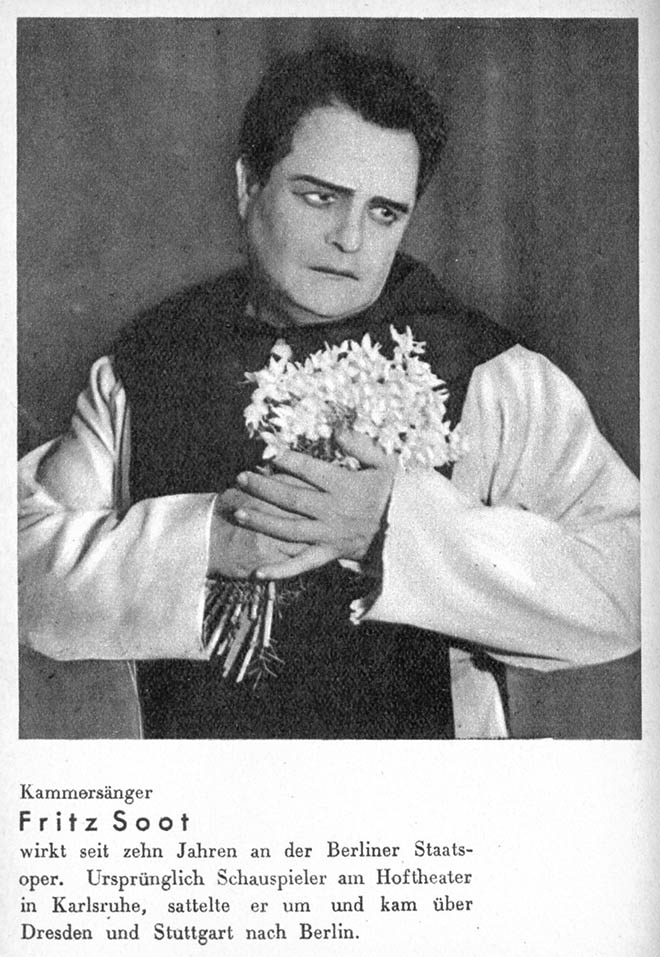Fritz Soot
20 August 1878 Neunkirchen (Saarland) – 9 June 1965 Berlin

Very young and after just brief training, Soot made his debut as a straight actor in Karlsruhe;
in some roles, he also had to sing, so he began studying voice in 1900. In 1907, he was offered a contract by the foremost
German-speaking drama theater: the Burgtheater in Vienna. Soot declined, and decided to be a singer rather than an actor. He left
the Karlsruhe theater, completed his vocal studies (with Karl Scheidemantel in Dresden, among others), and made his tenor debut
in 1908 in Dresden, as Tonio in La fille du régiment, no less. He was an immediate success, and was invited to make
guest appearances on various German stages; the Dresden opera made him their member in 1909. In the 1909 Dresden world premiere
of Elektra, he sang the tiny part of the Young Servant, in the Rosenkavalier world premiere at the same theater (26 January 1911),
he was the Italian Singer. Other than that, he sang primarily the Italian and French repertory.
After fighting World War I, he continued his career in Stuttgart from 1919, now as a heldentenor. In 1922, he was hired by the
Berlin Staatsoper, where he would stay for good. He specialized in Wagner, and in contemporary music, participating in a host of
world premieres (Pfitzner's Das Herz and Graener's Der Prinz von Homburg, among others) and Berlin premieres
(Janáček's Její pastorkyňa as Laca and Z mrtvého domu, Busoni's Doktor
Faustus, Weinberger's Švanda dudák); he was a famous interpreter of Waldemar in Schönberg's
Gurrelieder. As a guest, he sang at the Zoppot Festival, at the Vienna Staatsoper and at Covent Garden.
From 1935, he worked primarily behind the scenes, in the theater administration and as a stage director, but continued to sing
small parts until 1952 (!), after WWII also at the Städtische Oper.
 |
| from: Künstler am Rundfunk. Ein Taschenalbum der Zeitschrift Der deutsche Rundfunk, Berlin 1932 |
I wish to thank Thomas Silverbörg for the recording (Cavalleria).
Picture source (top)
Recording source (Tannhäuser)
References for the biography: Klaus-Ulrich Spiegel and Kutsch & Riemens
Many thanks to Anton Bieber for the Künstler am Rundfunk scan.
|

